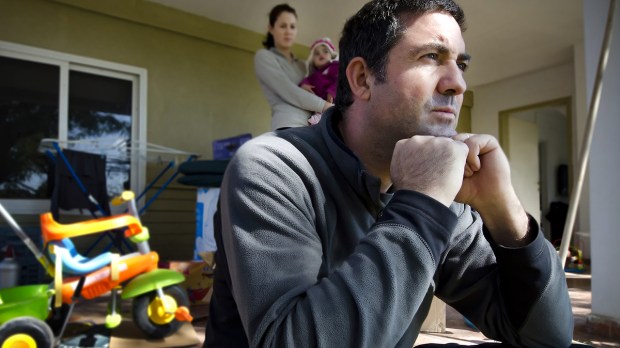(This list is prepared for husbands and wives who are in difficult stages of a basically good marriage. Husbands or wives who are suffering abuse are urged to get help.)
Even if you are miserable now, there’s a lot to be hopeful about:
1. Things will improve. The stats prove it.
A new study is cheering the internet these days: Researchers found that even if being married is miserable right now, things will likely get better. Nearly 70 percent of those surveyed reported that a little time (well, okay, a few years) was all that was needed to turn things around. If the awareness that there’s a light at the end of the tunnel isn’t enough, keep in mind that you’re not the only one who’s had a hard spell. Those Facebook photos of family vacations are not the whole story. Some maintain that spouses even have “seasons of hate.”
2. Your kids are learning something.
We worry about what message our kids are getting from marital discord. And there’s no doubt children are negatively and deeply affected by a lack of harmony between spouses. But don’t forget the flip side, suggested by Cormac Burke:
“How important it is for a young person entering adult life, and especially when approaching marriage, to be able to say: ‘My parents’ marriage lasted. They stuck together. And it is not as if they always found it easy; not as if they were ideally matched. No way! They had their defects (we children too knew them …). And yet they stuck together — perhaps mainly for our sake. I think they stuck together too because they prayed. They had their quarrels, but they were faithful.’” (From Covenanted Happiness)
3. The Church has tools to help!
People rarely realize they are making history when they’re making it, but undoubtedly, in a couple hundred years, folks are going to look back on our decades and say, “Wow, the Church really developed her teaching and ministry to families during those years.”
John Paul II made a monumental step with his Theology of the Body general audiences. Benedict XVI continued in his footsteps. I often recall a talk of Benedict’s, a q-and-a with priests during his summer vacation of 2007. I was just a few months from getting engaged — inexperienced, naive and totally smitten — so I was quite surprised by his comment. After speaking about the need for good marriage preparation, he added this: “But preparation is not enough; the great crises come later. Consequently, ongoing guidance, at least in the first 10 years, is of the utmost importance. In the parish, therefore, it is not only necessary to provide preparatory courses but also communion in the journey that follows, guidance and mutual help.”
I was not only surprised to hear him say newlyweds need extra support for 10 whole years, but I also remember thinking that I’d never heard of any parishes doing anything like that.
Now, 10 years later (and almost nine years of marriage for me), I can see why Benedict thought a full decade of extra support was necessary, and, I’ve gladly discovered, there are tools out there. Plus, the Holy Spirit has been pushing hard to move hearts — consider that since that summer, we’ve had not one but two synods on the family, and we have Francis’ apostolic exhortation chock full of practical help and spiritual insight for married couples.
Besides that, these programs are a selection of some of what’s available (if you know of more, feel free to link to them in the comments):
Marriage Encounter – weekend retreat and ministry for couples
Domestic Church movement – founded in Poland and spreading quickly in the US, a lay movement with links to Teams of Our Lady. One highlight: retreat for the whole family each summer
Choice Wine ministry – from the creators of the popular That Man Is You! program
Alexander House – founded by authors of Marriage 911: How God Saved Our Marriage and He Can Save Yours Too
and Retrouvaille — for rescuing marriages experiencing crisis
4. Finally, remember that some better perspectives can help your attitudes.
Don’t fall into the “we’re not right for each other” trap. Check out this wisdom about “soulmates” and other related misunderstandings:
From GK Chesterton: “I have known many happy marriages, but never a compatible one. The whole aim of marriage is to fight through and survive the instant when incompatibility becomes unquestionable. For a man and a woman, as such, are incompatible.” (in What’s Wrong With the World)
From Benedict XVI: “I often think of the wedding feast of Cana. The first wine is very fine: This is falling in love. But it does not last until the end: A second wine has to come later, it has to ferment and grow, to mature. The definitive love that can truly become this ‘second wine’ is more wonderful still; it is better than the first wine. And this is what we must seek.”
From St. John Chrysostom: “If a man and a woman marry in order to be companions on the journey to heaven, then their union will bring them great joy.”
And this last tidbit from marriage counselor Gregory Popcak: “At various points, even the happiest husbands and wives become frustrated with each other and can feel like their spouse is undeserving of their commitment. But where less happy couples use this as a justification for withdrawing their love and entertaining thoughts of divorce, happy couples remind themselves that their commitment is to their marriage, itself, even more than to their feelings for their spouse.”

